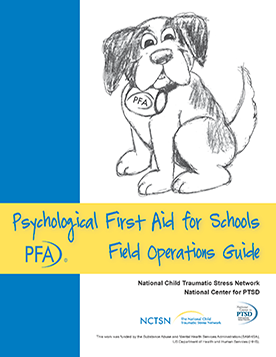
Psychological First Aid for Schools (PFA-S) Field Operations Guide
Provides guidance on responding to disaster, violence, or terrorism events using the Psychological First Aid intervention.
The following resources on child trauma were developed by the NCTSN. To find a specific topic or resource, enter keywords in the search box, or filter by resource type, trauma type, language, or audience.

Provides guidance on responding to disaster, violence, or terrorism events using the Psychological First Aid intervention.
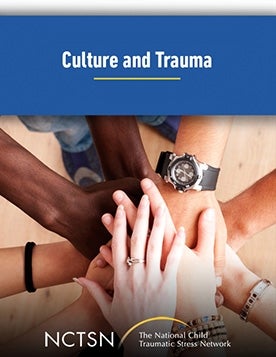
Offers information about refugee arrivals in the U.S. and refugee mental health needs and best practices.
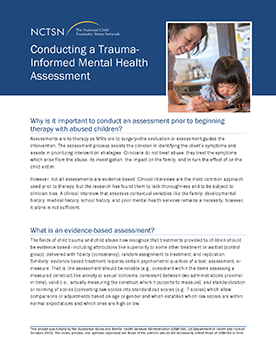
Provides information on why conducting a trauma-informed mental health assessment is important for those working in a CAC. This fact sheet looks at what an evidence-based assessment is, some of the instruments available, and what symptoms to look for when doing an assessment.
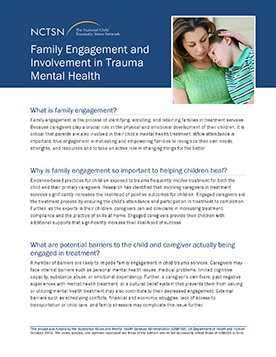
Gives information on family engagement, why its important, the potential barriers to engaging a family, specific strategies for engagement, and how MDT partners can be involved in family engagement.
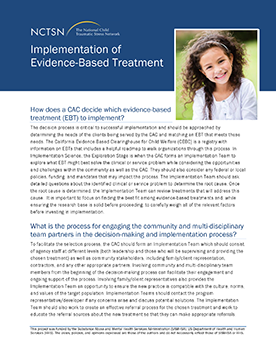
Gives an overview of implementing evidence-based treatment at a CAC.

Discusses the differences between offering mental health services on site at a CAC versus partnering with other organizations to provide care.
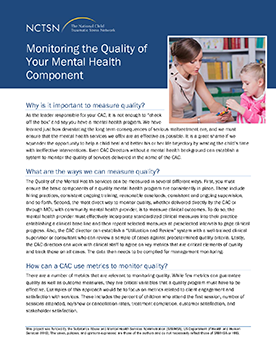
Discusses why it is important to measure the quality of a CAC's mental health component. This fact sheet looks at ways to measure quality, how a CAC can use metrics to monitor quality, and how a CAC can use conversation to monitor quality.
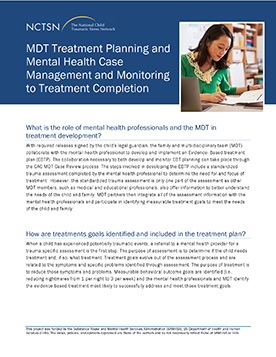
Looks at the multi-disciplinary team (MDT) and case management monitoring as a component of treatment completion.
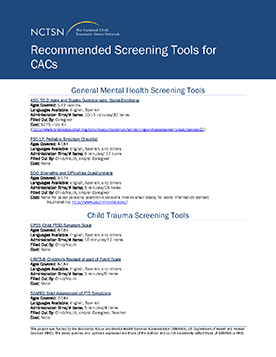
Gives a list of screening tools that are appropriate for use in a CAC.

Provides information on screening for mental health needs and trauma in a CAC.

Describes the purpose and function of supervision of mental health professionals providing treatment through a CAC. This fact sheet provides information on how a CAC can establish and monitor different types of supervision, as well as the role the CAC Director has in clinical supervison.
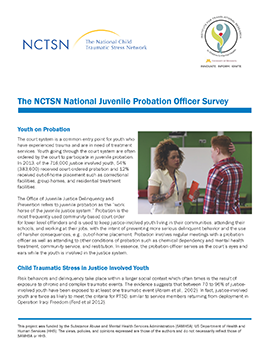
Details the results of a nationwide survey of probation officers. This survey looks at what probation officers know about trauma, how best to collaborate with them, and what products they would like to meet their needs with respect to trauma-informed practices.